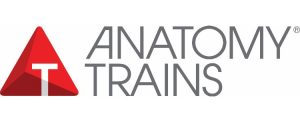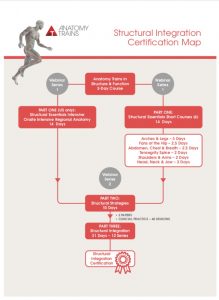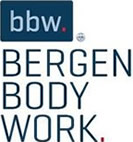


The Anatomy Trains Structural Essential series, is a set of intensive soft-tissue technique courses divided into functional regions. Combining movement and manual techniques for the most efficient and long-lasting results, and using the latest research on the interaction between skeleton, muscles, joints, and fascial proprioceptors, this series of workshops will take you to a new level in therapy.
Structural Essentials #2
Fans of The Hip
Designed with the busy manual therapist in mind, each Structural Essentials event gives you a new understanding of the relevant area. The content will outline how the structural and functional anatomy relates to many common issues as well as to the rest of the body. Based on many new and established approaches this series will give you the skills in palpation, BodyReading and functional analysis needed for the modern multidisciplinary therapist.
The hip and pelvis combine to transfer the forces from two legs and into the one spine and therefore has a hugely complex role to fulfill in the body. Ida Rolf described the pelvis as ‘the joint that determines symmetry’ and it is easy to see why. Differences between the hips can affect down into the legs or up through the spine. Achieving balance here can be essential for long lasting results in any therapy. This course sheds light on the pelvis – the keystone of human architecture – by organizing the 20 or so muscles of the pelvis into three fans. Get specific with sensitivity.
Highlights include:
- Seeing how the soft tissue is arranged in an easy to understand pattern
- Using these fans to balance pelvic tilts and torsions
- Learning how to work accurately, effectively and sensitively with the adductors around the ischial ramus and deep lateral rotators, leading to the pelvic floor
- The psoas complex and the many variations on ideas of how it does (or does not) affect pelvic, low back and hip patterns
Part 1: Structural Essentials, We take a deep dive to the local areas of the body learning MFR and strategies for one area at the time:
- Arches and the Legs 3 days – 17th- 19th of January 2025
- Fans of the Hip 3 days – 7th-9th November 2025
- Abdomen, Chest & Breath 2 1/2 days – 13th-15th February 2026
- Tensegrity Spine 2 1/2 days – 17th-18th April 2026
- Shoulders & Arms 2 days – 19th-20th April 2026
- Head, Neck & Jaw 2 days -19th-20th June 2026
Part 2: Structural Strategies – 3 sessions building on each other. In the second phase, students apply the assessments and techniques from Part 1 to practice a 3-series protocol of Structural Integration with clinical practice on outside models in a 10-day program. Scheduled on the 22nd of June until 3rd of July 2026. (27th and 28th are days off)
Part 3: Structural Integration – 12 series The third phase, 2 x 15-day classes is where students are taught and tested in the full 12-series program of Structural Integration. Graduates from this program are certified to practice Anatomy Trains Structural Integration and join the International Association of Structural Integrators (IASI). Date and place is still to be confirmed.
*Requirements before entering the final part 3: You will make contact with a certified Si Practitioner to receive your own personal 10 or 12 series Structural Integration.
Note: Familiarity with the Anatomy Trains lines and concepts is key to getting the most from the program. Anatomy Trains Structure & Function is the introduction course to the Structural Essentials series.
The Structural Essentials workshops are most easily absorbed in the order outlined below but you can do them in any order as time permits.
- Arches and Legs – 3 days
- Fans of the Hip – 2 ½ days
- Abdomen, Chest and Breath – 2 ½ days
- Tensegrity Spine – 2 days
- Shoulders & Arms – 2 days
- Head, Neck & Jaw – 2 days
The Pathway towards professional Certification
Anatomy Trains Structural Integration
Anatomy Trains Structure and Function 3-day overview class, where we get to know you and you get to know us. Follow up with our six regional anatomy workshops.
In the second phase, students apply the assessments and techniques from Part 1 to practice a 3-series protocol of Structural Integration with clinical practice on outside models in a 10-day program.
The third phase, 2 x 15-day classes is where students are taught and tested in the full 12-series program of Structural Integration. Graduates form this program are certified to practice ATSI and join the International Association of Structural Integrators (IASI).
Introduction Workshop for Manual & Movement professionals;
Anatomy Trains, Structure & Function – 3 days
Part I: The six Structural Essentials (a deep dive to local areas)
- Arches and the Legs
- Fans of the Hip
- Abdomen, Chest & Breath
- Tensegrity Spine
- Shoulders & Arms
- Head, Neck & Jaw
Part II: Structural Strategies – 3 series (Starting to put the parts together in strategies) 10 days training. Requirements before participating part III: Receive the personal 12 series Structural Integration with a certified ATSI practitioner; Find a practitioner near you
Part III: Structural Integration – 12 series (Connecting the dots in the whole moving body)
30 days training. Note: To be able to apply for part III you need to have completed and gotten approved previous part II.
Information about Anatomy Trains courses worldwide: www.antomytrains.com

